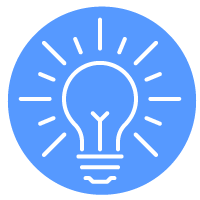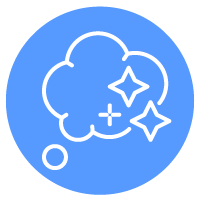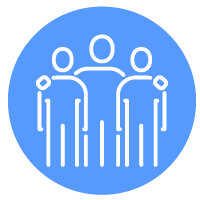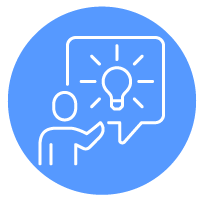4 Sets of Soft Skills for Tech Professionals

Scrolling through job postings can feel like walking through the grocery store, shopping list in tow, as applicants check off the items already in their cart: a bachelor’s degree in a related field, three years of experience data mining and proficiency in Python.
But other requirements aren’t as easy to mark complete. Great teammate, problem solver, can-do attitude—these soft skills don’t come with a certificate but are often just as desirable.
Soft skills are traits or behaviors that are learned and applied situationally. Unlike hard or technical skills, they are not dependent on knowledge learned in specific areas. Job postings, even for technical professions, strike a balance between the two.
For example, an application for a data scientist at Apple asks for Hadoop and code writing experience, but it also emphasizes the need for a self-starter and versatile problem solver.
And in a study of Fortune 500 CEOs, research showed that 75% of long-term career success depends on soft skills rather than technical skills.
LinkedIn data predicted the most in-demand hard and soft skills for 2019.
Hard Skills
- Cloud computing
- Artificial intelligence
- Analytical reasoning
- People management
- UX design
Soft Skills
- Creativity
- Persuasion
- Collaboration
- Adaptability
- Time management
But the path to building soft skills isn’t always clear. How can tech professionals work on their creativity, collaboration and problem-solving skills in concrete ways that make them more desirable applicants?
Below are four sets of soft skills and recommendations for ways to build them in the workplace.

1. Critical Thinking Skills
Critical thinking encompasses a range of analytical and reasoning skills, but the main tenet is the ability to think logically. This includes reflecting on personal knowledge, performing objective analysis and presenting authentic arguments.
People who engage in critical thinking may find it easier to make evidence-based decisions, recognize errors and remove their own personal feelings from business processes.
Some examples of requests for critical thinking skills in a job application include:
- Problem solver
- Can deconstruct issues
- Able to link related ideas
- Capable of identifying inconsistencies and errors
Ways to Build Critical Thinking Skills
Engage in Mind Mapping Exercises
Mind mapping is a method of visually organizing information and the thinking process. Practice using tools like MindMup, XMind and Lucidchart. It’s an effective way of documenting ideas in one place, and it also helps you practice clearly linking those ideas. With a big picture understanding of a project, you can better strategize, organize and accomplish tasks.
Conduct Postmortems
Formally engage in self-reflection at the end of a project. Instead of thinking to yourself, “How did that go?” take time to document thoughts. Invite other team members to participate and answer some of the following questions:
- How did this project turn out? Was it a success?
- How would you describe the successes or challenges of this project to someone?
- What would you change about your process next time?
- What were some unexpected challenges you experienced? Were there any warning signs?
- What did you accomplish best during this project? How can you mimic those things in the future?
Play Devil’s Advocate
Think a few extra steps ahead and ask, “What are the potential outcomes for this decision, even if I think it is the best idea?” Alternatively, actively consider any opposing sides and try to come up with the best possible reasons to support them. Do this for the benefit of the decision at hand—the purpose is to make ideas stronger, not derail processes.
Other resources for building critical thinking skills include:

2. Creative Thinking Skills
Creative thinking isn’t just for artists—it includes skills highly sought after in tech professionals. Coming up with unorthodox solutions to a data problem, seeking entirely new processes and formulating a programming workaround are just some of the ways creativity benefits all kinds of workplaces.
Creative thinking combines reason with out-of-the-box ideation. How can things be done differently?
Some examples of requests for creative thinking skills in a job application include:
- Curiosity driven
- Innovative or imaginative
- Flexible/adaptable
- Artistic/design oriented
Ways to Build Creative Thinking Skills
Leave Your Lane
Consider an issue affecting your team that needs attention but seems to be waiting for someone to take control. Start to tackle it as a team, even if you personally feel out of your comfort zone. Forcing yourself to problem-solve in a new area may be challenging, but it will also prompt innovation.
Redesign Methods
Before starting a routine project, take time to rethink processes. Use previous post-mortems and feedback and consider: What’s something new that you could try here? What can be done differently? Combine these considerations with critical thinking skills to make sure that decisions remain logical.
Take Up Passion Projects
Set aside time every week to work on a nontraditional project at your own pace. This could rely on new hard skills—trying a coding language, practicing data mining or experimenting with UI—but will also force you to problem solve in nontraditional ways. Some examples include updating your personal website, recreating an ambitious visualization project or tinkering with an unfamiliar dataset.
Other resources for building creative thinking skills include:

3. Interpersonal Skills
Interpersonal skills demonstrate the ability to work well with and among others. Employees with these skills are usually seen as not just a culture fit but also a culture add. They collaborate successfully and often and are routinely on both ends of the feedback dialogue. Also called “people skills,” these strengths are fundamental to the workplace.
Some examples of requests for interpersonal skills in a job application include:
- Highly collaborative
- Team player
- Empathetic
- Loves learning from others
- Respectful and open minded
Ways to Build Interpersonal Skills
Step Into New Shoes
Ask to spend lunch with a colleague you don’t work with often to learn more about their job. Conversations like these can help you figure out your role in a larger system. Try asking some of the following questions:
- What is a typical day like for them?
- What are some of the most common problems they experience?
- Are there any common issues when working with your team?
- Is there anything you can provide help or expertise with?
Expand Your Team
Ask a colleague who might be unfamiliar with your work to sit in on a meeting or consult on a project. Actively work to encourage a consistent exchange of information using cross-team lunches, open meetings, office hours, and presentations. Bringing in new voices will prompt collaboration and original ideas.
Learn More About People
Personality tests don’t fully define people, but they prompt self-reflection and guidance that can be useful in the workplace. Using personality tests in the office can help you learn what motivates people. Does someone prefer working alone over brainstorming as a group? How do they best handle criticism and praise? Try systems like the Meyers-Briggs or Enneagram tests and actively use results to better the work environment.
Other resources for building interpersonal skills include:

4. Communication Skills
Communication relies on the ability to exchange information with others. It encompasses everything from a message with a colleague to a presentation in front of the department.
And while not everyone is or needs to be adept at the whole spectrum of communication, there are ways to improve those skills in small but meaningful ways. Employees who are great communicators can save time and money through clear directions and feedback.
Some examples of requests for communication skills in a job application include:
- Good listener
- Comfortable with public speaking and presenting ideas
- Responds well to feedback
- Clear and concise communicator
Ways to Build Communication Skills
Find Teachable Moments
It’s rare that your work will be presented in a vacuum, so don’t create it in one. Practice describing what you might have considered inexplicable to someone unfamiliar with your work. Ask for the time of a friend, family member, or colleague on another team and describe the project to them as clearly as possible. Forcing yourself to remove jargon and your own assumptions can help focus your work.
Recognize NonVerbal Cues
Understanding what people are saying when they aren’t speaking is a powerful communication tool. The different types of nonverbal communication include:
- Facial expressions
- Body movement and posture
- Gestures
- Eye contact
- Touch
- Space
- Voice
Learn more about nonverbal cues and practice responding to them.
Ask for Edits
Send a proof, prototype or first draft to a colleague who has the space to provide comments. Try including the specific questions you’re seeking feedback on:
- How can you make this clearer for the intended audience?
- What does the reader think the main purpose of this project is? Does that align with the actual goal?
- What are the reader’s initial reactions and questions?
- If the reader could request any change, what would it be?
- What does the reader think is done well in this piece?
Other resources for building communication skills include:

